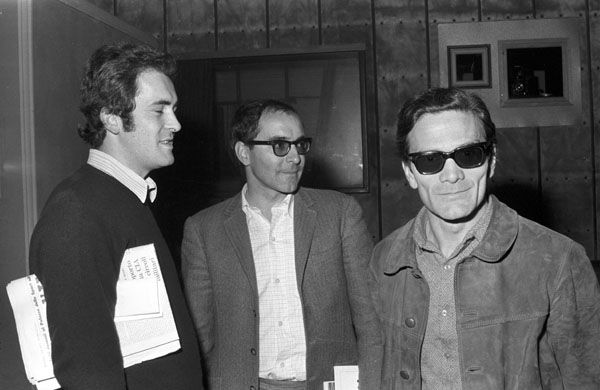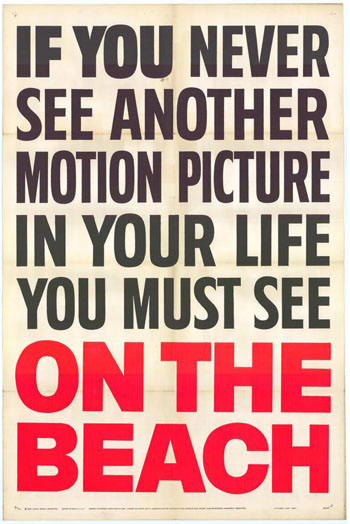The new issue of Screening the Past bulges with essays, book reviews, and poetry. Yes, poetry: Adrian Martin introduces three poems Bernardo Bertolucci wrote in his youth. In a related essay, Sam Rohdie takes Bernardo Bertolucci’s La via del petrolio (The Oil Road, 1965), a film made for Italian television, as point of departure from which to explore influences on the filmmaker ranging from his father, Attilio Bertolucci, and their mutual friend, Pier Paolo Pasolini, to an impressive array of literary and cinematic giants of the mid-20th century.
Adrian Martin also translates Jean-Baptiste Thoret‘s interview with Gilles Mouëllic (the subject of the conversation that took place in 2000: “Jazz and Cinema”) and presents notes on “six of the radio plays Welles worked on in varying capacities, trying both to link these works to the artistic and narrative explorations of his wider career, and to value them in their own right as remarkable examples of a lost, radiophonic aesthetic.” Another piece revived for Issue 36: Douglas Pye in 2001 on Max Ophüls’s narrators.
Among the book reviews: Daniel Ross on J. Hoberman‘s Film After Film: Or, What Became of 21st-Century Cinema?, Jonathan Rosenbaum on the new collection The British Film Institute, the Government and Film Culture, 1933-2000, Chris Mildren on Richard Rushton’s Cinema After Deleuze, Ben McCann on Jacob Leigh’s The Cinema of Eric Rohmer: Irony, Imagination, and the Social World, Daniel Cape on David T. Johnson’s Richard Linklater, and Cristina Álvarez López on Adrian Martin’s Last Day Every Day: Figural Thinking from Auerbach and Kracauer to Agamben and Brenez.
Among the essays: Steve Marchant asks, “What is a shot?” Plus, George Kouvaros on Anna Kannava’s Ten Years After … Ten Years Older (1986) and The Butler (1997) and her brother George’s Anything But The Empire Strikes Back (1980), Felicity Chaplin on Godard’s Une femme est une femme (1961), and Jeannette Delamoir on Raymond Longford’s The Sentimental Bloke (1919), “a landmark Australian film.”
Mick Broderick writes that the “very ambiguity of narrative cause-and-effect” in Stanley Kramer’s On the Beach (1959) “led to the highly contested nature of official military cooperation and later the Eisenhower White House campaign to undermine the film’s credibility. Having effectively bypassed the Pentagon, Kramer sought to maximise the film’s impact globally by releasing it simultaneously, premiering in multiple world capitals, including some behind ‘the iron curtain’. The producer-director arranged a series of public discussions with leading experts, philosophers and theologians to debate the film and the political-military context, while sotto voce initiating a campaign to secure nomination of the film for that year’s Nobel Peace Prize.”
The issue actually opens with a “Special Feature,” Bernard Stiegler‘s keynote address at last fall’s Film-Philosophy Conference in London: “I argued in Le temps du cinema—the third volume of Technics and Time, translated as Cinematic Time and the Question of Malaise—that we must refer to arche-cinema, just as Jacques Derrida spoke (in Of Grammatology and beyond) of arche-writing. I propose today that, in principle, the dream is the primordial form of this arche-cinema—and this is why an organization of dreams is possible.”
For news and tips throughout the day every day, follow @KeyframeDaily on Twitter and/or the RSS feed. Get Keyframe Daily in your inbox by signing in at fandor.com/daily.





